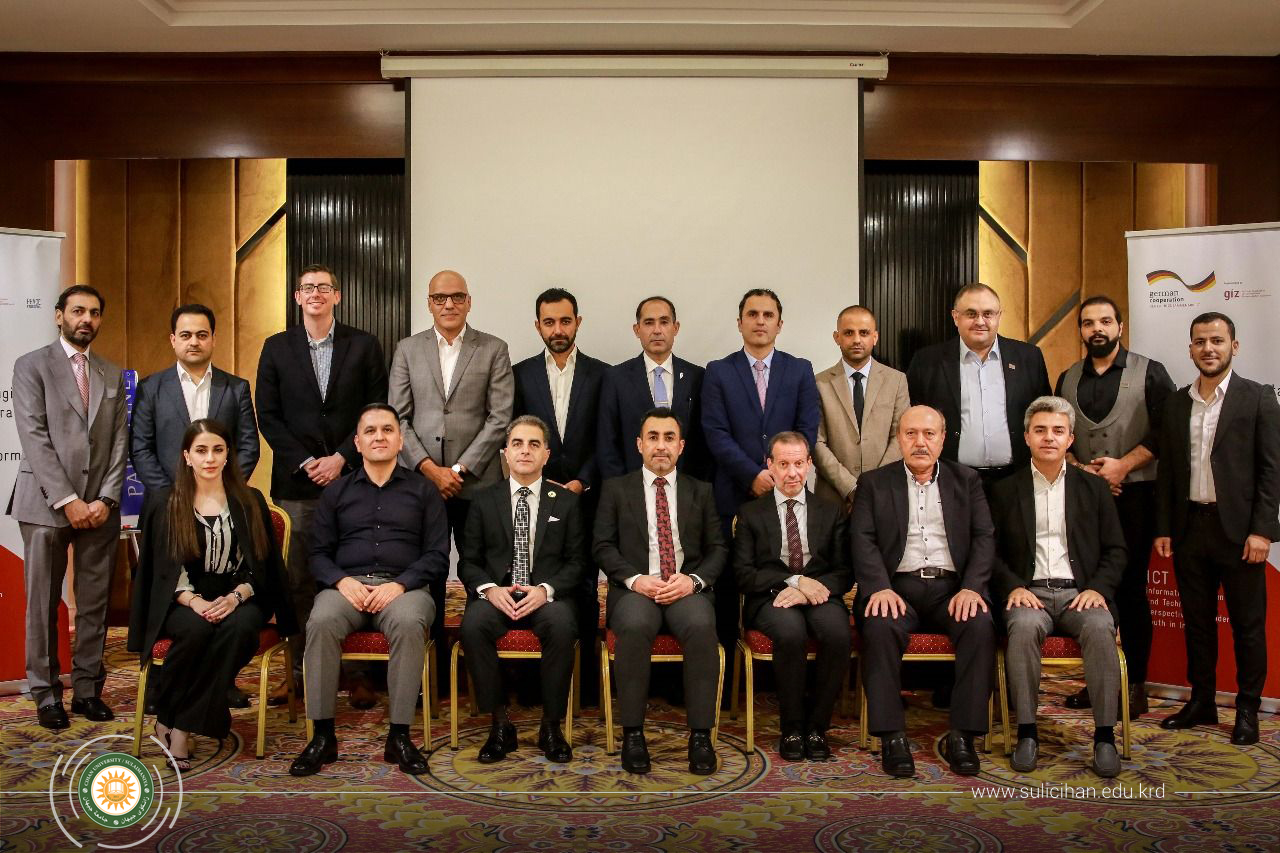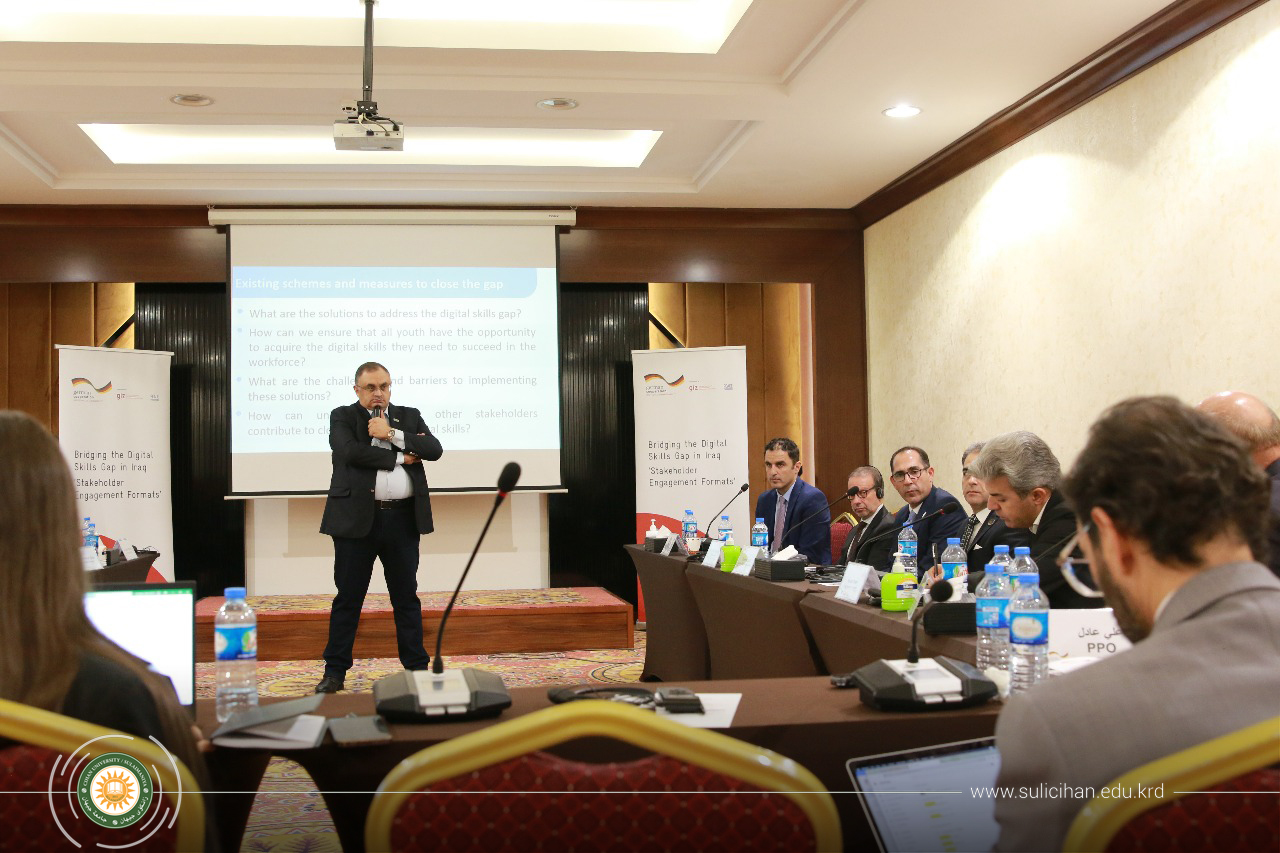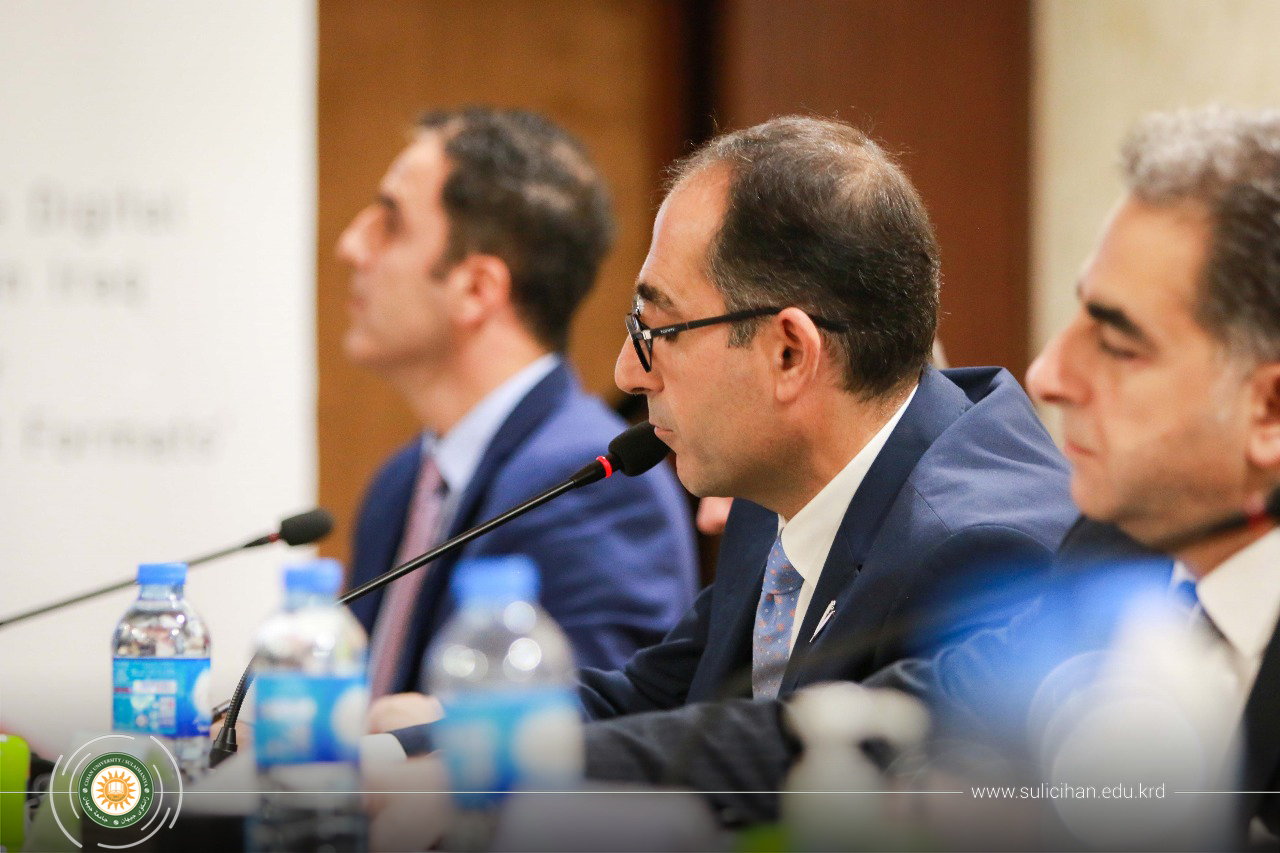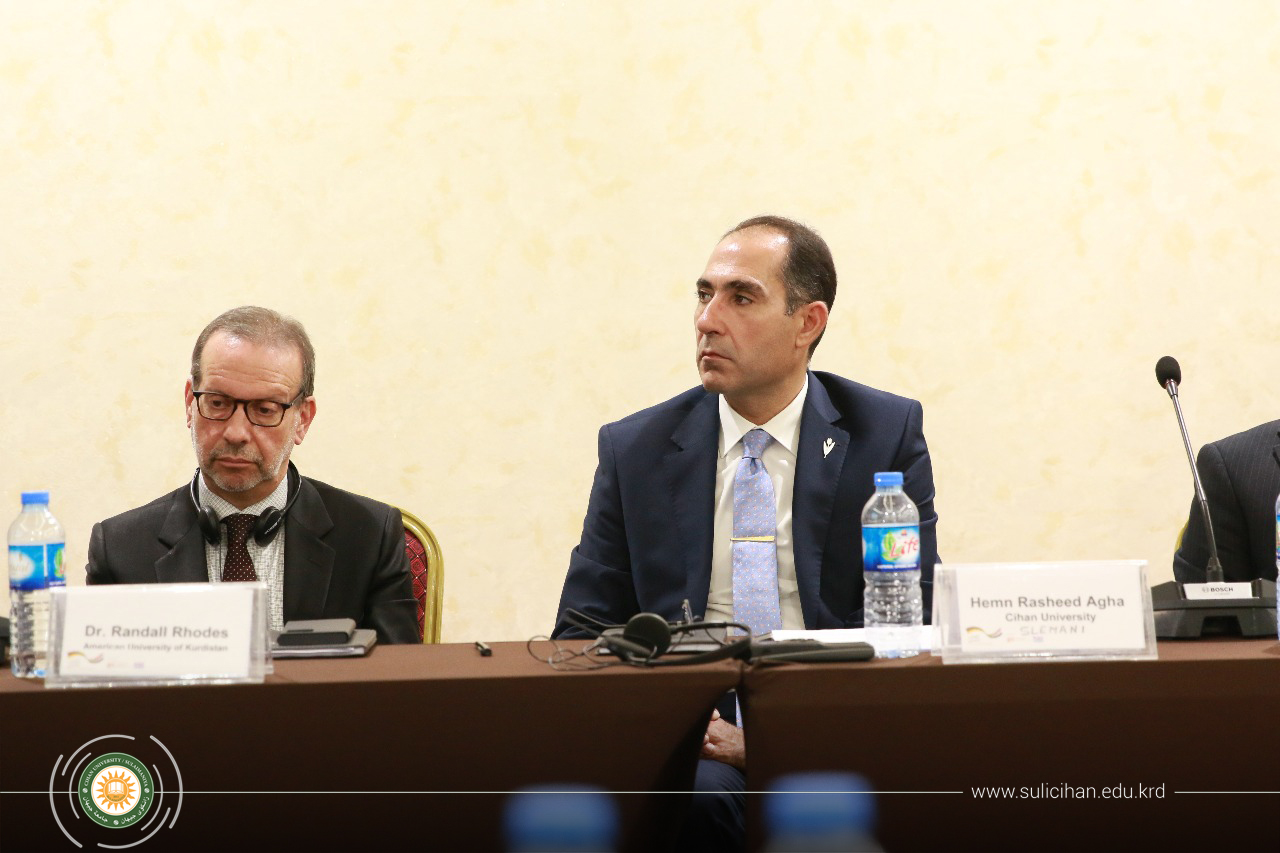
The German Federal Ministry for Economic Cooperation and Development: Enhancing the Prospects for Youth in Iraq’s Digital Economy
In partnership with the ICT for Youth project by Deutsche Gesellschaft für Internationale Zusammenarbeit (GIZ), funded by the German Federal Ministry for Economic Cooperation and Development, the Peace Paradigms Organization (PPO) is coordinating a forum. This initiative aims to pinpoint the challenges faced by the Iraqi labour market concerning digital skills and devise innovative strategies to bridge the existing gap. To this end, a sequence of workshops has been conducted, involving stakeholders from the Private Sector, Academia, Training Institutions, and Public Sector.
Cihan University’s Role
Cihan University – Sulaimaniya actively contributed to this initiative by participating in the third workshop, dedicated to public and private universities in the Kurdistan Region of Iraq. Mr. Hemen Rasheed Agha, Director of Quality Assurance and Lecturer of Public Law upheld the University’s role a pivotal in enhancing discussions and enriching the workshop’s outcomes.
Cihan University – Sulaimaniya held the opinion that, while universities play a crucial role in higher education and can provide valuable input, the development and implementation of education policies and strategies are primarily the responsibility of the Ministries of Education and higher Education. Ministries of education are responsible for ensuring that education systems meet the needs of the society, while universities focus on providing education and advancing knowledge within their specialized areas.
Role:
The role of universities is primarily focused on providing higher education, conducting research, and fostering academic and intellectual growth. They offer various degree programs, facilitate research activities, and contribute to the advancement of knowledge and expertise in various fields.
The Ministries of education are to oversee and regulate the entire education system within a country. This includes developing education policies, curriculum guidelines, and ensuring that educational institutions operate effectively.
Function
The main functions of universities include teaching, research, community engagement, and the dissemination of knowledge. They offer educational programs, conduct research projects, and contribute to the overall intellectual and cultural development of society.
The functions of the Ministries of Education include formulating education policies, setting curriculum standards, ensuring access to education, monitoring educational institutions, and promoting the quality and equity of education across the country.
Contextual Background
Against the backdrop of Iraq’s tumultuous history marked by wars, sanctions, and internal conflicts, the nation grapples with a dearth of sustainable peace and stability. As Iraq seeks to forge a path towards sustainable development, the imperative to address its digital skills gap assumes significance.
Workshop Objectives
The academic workshop aimed to convene representatives from public and private universities in the Kurdistan Region of Iraq. Its primary goals were twofold: first, to comprehend the underlying reasons for the gap between educational outputs and private sector digital skill demands; second, to explore potential remedies that can bolster the educational system’s ability to address this disparity. Importantly, the workshop aimed to dissect the divergence between advanced specialized skills and foundational digital competencies across diverse academic domains.
Understanding the Digital Skills Gap
The digital skills gap signifies the disparity between the proficiencies demanded by the job market and the skills available among job seekers. From an academic standpoint, several contributing factors underscore this gap:
- Outdated Curricula: Academic institutions often struggle to keep pace with the rapidly evolving digital landscape, resulting in outdated curricula that fail to incorporate the latest tools and techniques.
- Specialized Program Deficiency: The absence of specialized programs, tailored to domains like data science and artificial intelligence, limits students’ in-depth training.
- Rapid Technology Evolution: The swift pace of technological evolution renders curricula outdated by the time they are implemented, making acquired skills less relevant.
- Theoretical Emphasis Over Practicality: A bias towards theoretical teaching disregards hands-on experience, leaving graduates ill-equipped for real-world challenges.
- Industry Collaboration Limitations: Institutions lacking strong industry ties may lose sight of job market trends and demands, accentuating the skills gap.
- Teacher Preparedness: Educators’ own digital skill gaps can impede effective transmission of knowledge to students.
- Resource Constraints: Limited access to contemporary resources hinders students’ skill development, necessitating better provisions.
- Perceived Relevance: Students might overlook seemingly unrelated digital skills, missing out on valuable opportunities.
- Diversity and Inclusivity: Underrepresented groups face barriers, underscoring the need for equitable access to digital education.
- Pedagogical Evolution: Conventional teaching methods may fall short in conveying certain digital skills, warranting innovative approaches.
- Continuous Learning Void: Graduates’ skills may quickly become obsolete without a culture of continuous learning.
Addressing the Gap:
To counter the digital skills gap, academic institutions must adopt agile curricula, foster industry partnerships, emphasize practical learning, and ensure educator upskilling.
Challenges in Higher Education’s Digital Adaptation:
The higher education sector grapples with digitalization’s rapid pace due to bureaucratic processes, resistance to change, and lack of industry alignment. Overcoming these challenges requires flexible curricula, faculty training, and enhanced collaboration.
Faculty’s Digitalization Hurdles:
Educators encounter challenges integrating digitalization into education, stemming from technological hesitance, time constraints, and pedagogical adaptation complexities. Overcoming these necessitates training, resources, and institutional support.
Existent Efforts and Future Enhancement:
Numerous initiatives are underway, encompassing government programs, online platforms, coding bootcamps, and more. However, their impact can be magnified through focused industry partnerships, updated curricula, and comprehensive support mechanisms.
Short, Mid, and Long-Term Approaches:
In the short term, workshops, training, and leveraging online resources can augment digital skills. In the mid-term, curriculum review, industry collaboration, and internship programs are vital. In the long term, integrated digital learning, faculty training programs, and comprehensive digital credentials can shape a sustainable solution.
Strategic Policy and Curricular Changes:
To bolster these efforts, forming advisory boards, implementing standardized digital skills frameworks, and fostering public-private partnerships are crucial. An overarching national strategy, curriculum revamp, and commitment to lifelong learning can create a robust foundation.
Concluding, bridging the digital skills gap demands a multifaceted and adaptive approach, involving academia, industries, government, and individuals. Striking a balance between immediate action and long-term strategies is essential to propel Iraq towards a digitally empowered workforce and sustainable development.











